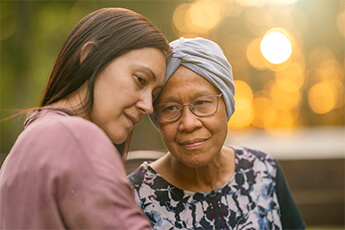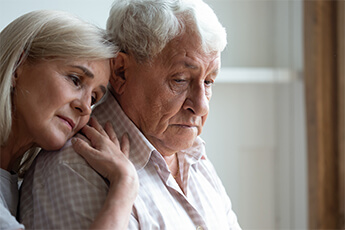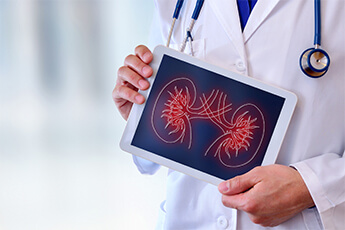Chemotherapy for kidney cancer
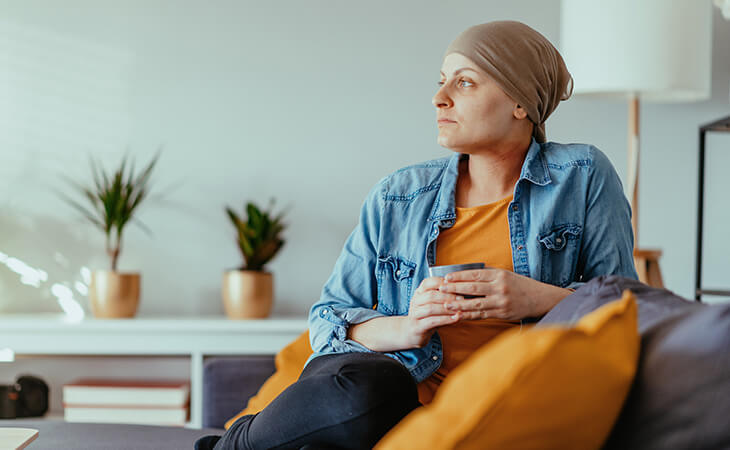
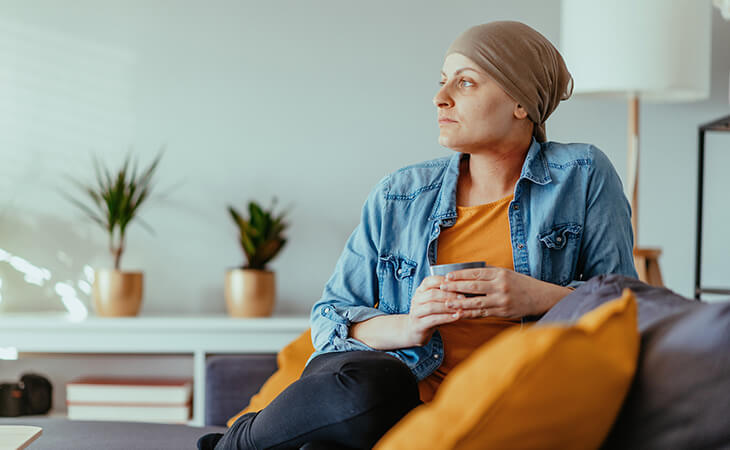
If you have kidney cancer, your doctor will recommend the best treatment based on the cancer stage, cancer type, and other factors like your overall health. The first step often involves surgery (nephrectomy) to remove part or all of the diseased kidney. Other kidney cancer treatments include radiation therapy, immunotherapy, hormone therapy, and targeted therapy.
While chemotherapy is a standard treatment for many cancers, it’s used in rare instances for people with kidney cancer. That’s because most kidney cancers (including the most common one, renal cell carcinoma) are chemotherapy resistant. The cancer cells resist or don’t respond to the treatment. As a result, cancer can spread from the original tumor in your kidney to other areas of your body. Metastatic kidney cancer is more difficult to treat, but it can respond well to chemotherapy. If your doctor recommends chemotherapy for metastatic kidney cancer, here’s what you need to know.
From the community: “I was diagnosed with stage 4 kidney cancer... I had my right kidney removed after the diagnosis. I had mets in my lungs and liver. I was put on votrient for 8 months I had terrible side effects. …I was put on opdivo and this drug truly saved my life. I have been on it for over a year and the only side effect that I have had is an itchy rash on my arms. I do sometimes get tired, but I just lay down for about an hour and I'm good. My last 3 scans have shown all of the mets are gone and the tumor that they were most worried about is barely noticeable. I am back to doing everything I was doing before this ugly disease came in my life. I hope opdivo is as good for you as it has been for me.” – Inspire member
What is chemotherapy for kidney cancer?
Chemotherapy (chemo) is a systemic treatment for cancer. Systemic means the drugs circulate in your bloodstream, targeting and destroying cancer cells. Chemotherapy can stop cancer cells from growing, multiplying, and forming more cancer cells.
From the community: “I have decided to go with chemo although I do still need encouragement! The cancer I have is unusual for the kidney it is usually found in the bladder. I have read that "regular" kidney cancer does not respond to chemo although I understand they are finding immunosuppressant drugs that work well with RCC kidney cancer…” – Inspire member
When do you need chemotherapy for kidney cancer?
Chemotherapy doesn’t just target cancer cells in your kidney. The medication travels throughout your body. For this reason, chemotherapy is most effective for metastatic kidney cancer, also known as stage 3 or stage 4 kidney cancer.
When kidney cancer spreads, it can indicate that other treatments like targeted therapy are no longer effective at treating the disease. Chemotherapy is often just one part of the treatment plan for metastatic disease. You may also get other standard treatments, or you may combine chemotherapy with new therapies only available in clinical trials.
While chemotherapy can’t cure kidney cancer, it can ease symptoms of bone metastases (cancer that spreads to your bones), lung metastases (cancer that spreads to your lungs), and other types of metastases.
Certain types of kidney cancer respond better to chemotherapy. These include:
Urothelial carcinoma: Also called transitional cell carcinoma (TCC), this is the most common type of bladder cancer. The cancer starts in the lining of the bladder and can affect the renal pelvis and ureters that connect to the kidneys.
Wilms tumors: This is the most common type of kidney cancer in children. As many as 9 in 10 kids with kidney cancer have Wilms tumors. Doctors use chemotherapy to treat this cancer.
From the community: “My husband had his left kidney, ureter and bladder cuff removed October... He had 8 treatments of Cis/Gem December-January...He did very well with the treatments. They gave him extra fluids before the chemo because of only having one kidney. The only side effects that he had were hiccups and tiredness the day after. He would have the chemo on a Friday so that he would be back to work on Monday.He also had stage 3 transitional cell carcinoma.” – Inspire member
What are the types of chemotherapy for kidney cancer?
Your chemotherapy regimen — or how often and how long you’ll get chemo — depends on the medication type and other factors. You may get several cycles of one or more chemotherapy drugs for a specific time and then have rest periods where you don’t get treatment. Your doctor can discuss the best regimen for your specific situation.
You can get chemo through an IV at a hospital or infusion center. Some people use a portable infusion pump at home. Or you may take a daily dose in pill or liquid form. The method depends on the medication and your treatment regimen.
Types of chemotherapy for kidney cancer include:
capecitabine (Xeloda®)
5-fluorouracil (Adrucil®)
floxuridine (FUDR®)
gemcitabine (Gemzar®)
ipilimumab (Yervoy®)
nivolumab (Opdivo®)
vinblastine (Alkablan-AQ®, Velban®)
From the community: “I have had great success with Opdivo. After a radical nephrectomy... recurrence with mets to lungs... an unsuccessful run at HD IL2 and 3 lung surgeries within a month timespan, then it attacked my other kidney with rapid growth to 4cm in 3 months. Things were bleak. Then august last year I started Opdivo and have been on it since. Latest scan last week showed only 2 lung mets remaining under 1cm and the kidney met is down to 9mm. Fully functional. Complaints: fatigue, occasional icky feeling, diarrhea offset with constipation. All manageable. Able to work. Thankful I can be here with my family.” – Inspire member
What are the side effects of chemotherapy?
Chemotherapy drugs are cytotoxic. This means they’re lethal to all living cells, not just cancerous ones. Chemotherapy can stop cancer cells from multiplying and spreading, and shrink tumors, but the toxicity of the treatment also causes side effects.
Chemotherapy side effects include:
diarrhea or constipation
easy bruising or bleeding
extreme fatigue
hair loss
increased risk of infections
loss of appetite and weight loss
mouth sores
nausea and vomiting
weight loss
How can you manage chemotherapy side effects?
Many of the side effects of chemotherapy go away when you stop treatment. Your doctor may prescribe medications to lessen nausea. A palliative care specialist can also help you manage treatment side effects. These specialists provide supportive services for people living with chronic illnesses. They can provide tips to help you live better with kidney cancer. When kidney cancer stops responding to treatments, you may consider hospice care.
Sources
Chemotherapy for kidney cancer. American Cancer Society. February 2020.
Kidney cancer: Types of treatment. American Society of Clinical Oncology. October 2020.
Understanding chemotherapy. American Society of Clinical Oncology. May 2019.
How we treat kidney cancer. Dana-Farber Cancer Institute.
Chemotherapy for kidney cancer. Moffitt Cancer Center.
Disclaimer
Member comments are lightly edited for length and to remove identifying information but are otherwise reproduced as they appear in the community as part of public posts.
This content is for general informational purposes only and does not necessarily reflect the views and opinions of any organization or individual. The content should not be used as a substitute for professional medical advice, diagnosis, or treatment. Please consult your healthcare provider about any questions you may have regarding a medical condition.


